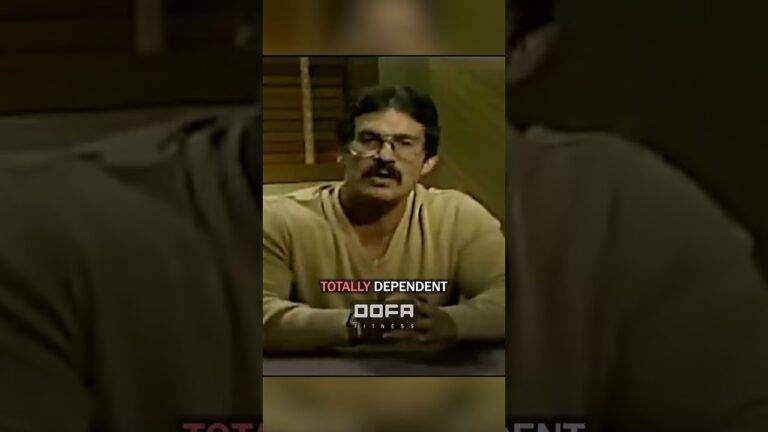Fasting, praying and working out: What ‘Exodus 90’ gets right—and wrong—about asceticism for men A new season is upon us, one of fasting, prayer and fellowship. A season where many Catholics recommit and rediscover the heart of their faith and of their personal lives. But wait… What season is this? We have just finished the Christmas season of celebration. Lent is coming early this year, but ashes have not yet been applied to our foreheads. The strange season that is upon us is that of Exodus 90, which began on Jan. 1 (90 days before Easter 2024). Based on the P90X workout program, it is meant as a spiritual and athletic exercise. With Catholic roots but open to all men, it centers on prayer, fasting and fraternity, but its approach to fasting has gained the most attention. It includes abstaining from television, social media, alcohol and most forms of reading—and famously includes taking cold showers as part of the program. The program aims to strengthen men in their vocations, aid them in the pursuit of chastity and deepen their faith. Their website boasts 100,000 participants since 2015, who tend to provide it with rave reviews. All to the good, right? Well, maybe not. Exodus 90 gets some things wrong and some things right. In the process, it reveals some of the failures of the church today. Pelagianism is a form of spiritual meritocracy, making it particularly attractive in an age that considers itself to be meritocratic. Liturgy and prayer Liturgy and prayer By learning from Exodus 90, we can renew practices of the faith–specifically the shared work of penance, fasting, and abstinence–that have too often been set aside. The wide scale abandonment of these practices in the 1970s after the Second Vatican Council undermined the communal nature of the people of God and made it harder to live the universal call to holiness. Losing these communal penances often meant that we blended into a secular, commercial and self-indulgent era. Rather than revivifying Christ-centered practices, this shift left a spiritual vacuum that programs like Exodus 90 seek to fill—but in ways that can distort aspects of Catholic life. Exodus 90 substitutes an exercise regimen for a liturgical one. We see this lack of connection with the liturgical calendar in a particularly acute way this year, when Exodus 90’s scheduled time of fasting begins within the octave of Christmas. Catholic life is and should be a liturgical life. The shape of our feasting and fasting should be shared according to the calendar of the church. The purple of Advent and Lent summons us all into a season of asceticism. However, while pegged to Easter, Exodus 90 departs from the shared life of the liturgical year and thus from the full ecclesial life. It portions away its participants from the ecclesial community in such a way that expresses more commonality with conservative men (for example, note the participation of Jordan Peterson) outside of the Catholic Church and less with the women and men in the church. While pegged to Easter, Exodus 90 departs from the shared life of the liturgical year and thus from the full ecclesial life. Almsgiving Almsgiving Exodus 90’s self-separation from the liturgical year is connected to how it separates prayer and fasting from almsgiving. These three Lenten practices are inseparable from the season and from each other. During the Lenten Office of Readings, we encounter St. Peter Chrysologus’ teaching on this unity: “Fasting is the soul of prayer; almsgiving is the lifeblood of fasting. Let no one try to separate them.” The Exodus 90 program prominently lists three core activities in their spiritual practice: prayer, fasting and fraternity . Our ascetic practices are always best when done with others. We hold each other responsible and support each other in our failings in our shared ascesis. Further, our ascetic practices should be difficult. As any athlete will tell you, exercise is hard and sometimes hurts. This is why Exodus 90’s emphasis on fellowship is itself salutary. We do not climb the mountain of purgation alone. And sometimes, men need to climb with other men—just as women do with other women. When I encounter men who have done Exodus 90, they tell me that they experienced it as a life-giving source of renewal and recommitment. But dropping the third element of almsgiving—and by rarely, if ever, mentioning it—Exodus 90 separates these traditional Lenten practices. Separating fasting and prayer from almsgiving drains the life out of them, for “to make these acceptable, almsgiving must be added. Fasting bears no fruit unless it is watered by mercy. Fasting dries up when mercy dries up,” as St. Peter Chrysologus wrote. To pray and fast is to prepare one to love, but to fail to love through the works of mercy is to stymie that preparation. Dropping almsgiving from the essential triad of spiritual practices undermines Exodus 90’s rich emphasis on fraternity. We do need fraternity in our culture of profound loneliness, which particularly afflicts men. But the danger of prayer and fasting without almsgiving is the danger of a self-focused spirituality. Almsgiving takes us beyond the joys of good friends who support us in the faith, because it expresses true fraternity with those who have little or nothing to offer us in return. It is the kind of fraternity Pope Francis emphasizes in “Fratelli Tutti,” a fraternity beyond our borders of comfort. It is also a fraternity that, without negating the goods of male or female specific bonding, but also goes beyond gender divisions to recognize that we are “brothers and sisters all.” The self-centered risk of Exodus 90 expresses itself in its neglect of the works of mercy, but it also risks a kind of semi-Pelagianism because of its roots in an exercise regimen, its downplaying of almsgiving, and its spiritual separatism from the liturgical calendar. Our saving and sanctification does not originate in ourselves, progress through ourselves or reach its fruition by ourselves. We pray, fast and give because we are graced. Seeing that these are the fruits of God’s charitable work allows them to be meritorious. This merit is best expressed in our humility (knowing that we have not earned this grace) and our charity (giving of ourselves to others). Exodus 90, on the other hand, can feel like it substitutes a business model for an ecclesial practice. Not many people make money from Lent; there is not much for sale. But Exodus 90 has plenty for sale: the program itself, sweatshirts, swag and a magazine. Almsgiving expresses true fraternity with those who have little or nothing to offer us in return. A spiritual gap A spiritual gap In a way, in its benefits and its drawbacks, Exodus 90 mimics the failure of the church, especially her clerical leadership, to feed her sheep. Exodus 90 fills a spiritual gap neglected by the American church. Vatican II made living the liturgy more possible for the laity. But rather than aiding the faithful in the full, active and conscious engagement with the liturgical year, too many clerics watered it down, obviating the rich differences between seasons. Rather than promoting Lent as a season full with shared ascetic practices, we stopped giving up meat for the liturgical season and substituted the amorphous practice of “giving something up for Lent.” Lent should be real : a shared and challenging practice in which we are all in together. When Catholics give up all kinds of different things for Lent, we cannot support each other as easily, and we lose the shared cultural practices that arise from a shared penance—even such secondary customs as Carnivale and Friday fish fries. Our Orthodox brethren and Muslim neighbors show us that penitential practices can help to build up the community of faith. We in the church then ought to strengthen the liturgical distinctions between fast and feast—in part by making the fast more rigorous—which will re-engage these men and strengthen all of us in the faith. Exodus 90 recognizes that we need more than our culture offers. Ascesis—in rejecting the excesses of consumption—frees us for relationships and for self-giving. But we need to fast if we are going to be enabled to give. To drink less, eat simply and turn off our electronic devices enables us to be present to the ones we love and to save resources to contribute to those in need. Lent should be real : a shared and challenging practice in which we are all in together. Embracing graces Embracing graces A church that re-embraces fasting can re-embrace the works of mercy and the works of social justice. Pope Francis’ recent letter on the German “synodal path” reminds us of this. He warns of “seeking ‘salvation’ in ever new committees and, with a certain self-referentiality.” As opposed to this self-referentiality, he emphasizes “the need for prayer, penance, and worship” so that we may “open up and go out to meet our brothers, especially those who are abandoned on the threshold of our churches, on the streets, in prisons and hospitals, squares, and cities.” Francis is right: We need to turn outward in prayer and fasting so that we can go out to the marginalized. Further, we should embrace prayer, fasting and almsgiving because they are graces. These practices are grounded in the law and the prophets; Christ taught these practices, and in his self-gift, gave us a model of grace. We should always be careful of pride. But in so doing, we should not flee the practices that Christ gifted us in the tradition. In prayer, we rediscover our need for God. In fasting, we rediscover that we are perfected in our weakness. And in almsgiving, we rediscover that in giving of ourselves we receive. Pelagianism is a form of spiritual meritocracy, making it particularly attractive in an age that considers itself to be meritocratic. Our pelagianism is shaped by, as Pope Francis writes, “excessive concern with programmes of self-help and personal fulfillment.” Exodus 90 risks coming too close to that meritocracy, but it also reminds all of us of the gifts of prayer, fasting and (though it replaces it with fraternity) almsgiving. Redirected, Exodus 90 can help redirect us all so that we can accept the gifts of Lenten practices. The church should see Exodus 90 as a partially flawed yet spiritually fruitful movement. In a way, Exodus 90 is almost prophetic: its many participants and supporters are a sign of our times and reason for joy and hope. In filling a real need in men for discipline, spiritual growth and mutual support, they remind us of the real need in all of us for the purgation of our sinful desires. They summon us into the rich spiritual and theological resources of the church for our times. Seeing what they offer, the whole church needs to emphasize these practices once again but in a more rightly ordered way. Restoring our shared fasts, our full liturgical life and our orientation towards communion and works of mercy means offering the ascetic discipline Exodus 90 offers within the right context of the church and her liturgical life. To do so would be to renew the church and redirect a worthy movement back into the fuller richness it so clearly yearns for.
This content was originally published here.




















